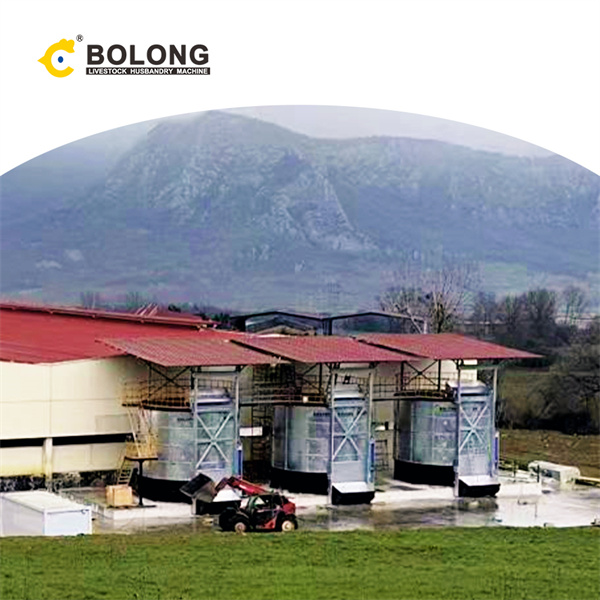Introduction: Managing livestock manure is a significant challenge in the agriculture industry. Bolong Fermentation Tanks provide an efficient solution to this problem by converting manure into valuable organic fertilizer. This article explores the role of Bolong Fermentation Tanks in managing livestock manure and their benefits.

Efficient Manure Management: Livestock farms generate large quantities of manure, which can pose environmental and health risks if not managed properly. Bolong Fermentation Tanks use high-temperature aerobic fermentation to rapidly decompose manure, reducing its volume and transforming it into nutrient-rich compost.
Nutrient Recycling: The compost produced by Bolong Fermentation Tanks is rich in essential nutrients such as nitrogen, phosphorus, and potassium. These nutrients are vital for plant growth, making the compost an excellent organic fertilizer. By recycling nutrients, Bolong Fermentation Tanks help close the nutrient loop in agriculture, reducing the need for synthetic fertilizers.
Environmental Protection: Improperly managed manure can lead to water pollution, greenhouse gas emissions, and odor problems. Bolong Fermentation Tanks mitigate these issues by treating manure in a controlled environment. The tanks prevent nutrient runoff, reduce methane emissions, and minimize odors, contributing to a cleaner and healthier environment.
Case Study: A dairy farm implemented Bolong Fermentation Tanks to manage its daily manure production. Before using the tanks, the farm faced issues with manure storage and disposal. After installing the tanks, the farm efficiently processed the manure into compost, which was then used to fertilize the farm’s crops. This not only improved manure management but also enhanced soil fertility and crop yields.
Conclusion: Bolong Fermentation Tanks play a crucial role in managing livestock manure, offering an efficient, environmentally friendly solution. By converting manure into valuable compost, these tanks support sustainable agriculture practices and protect the environment.
